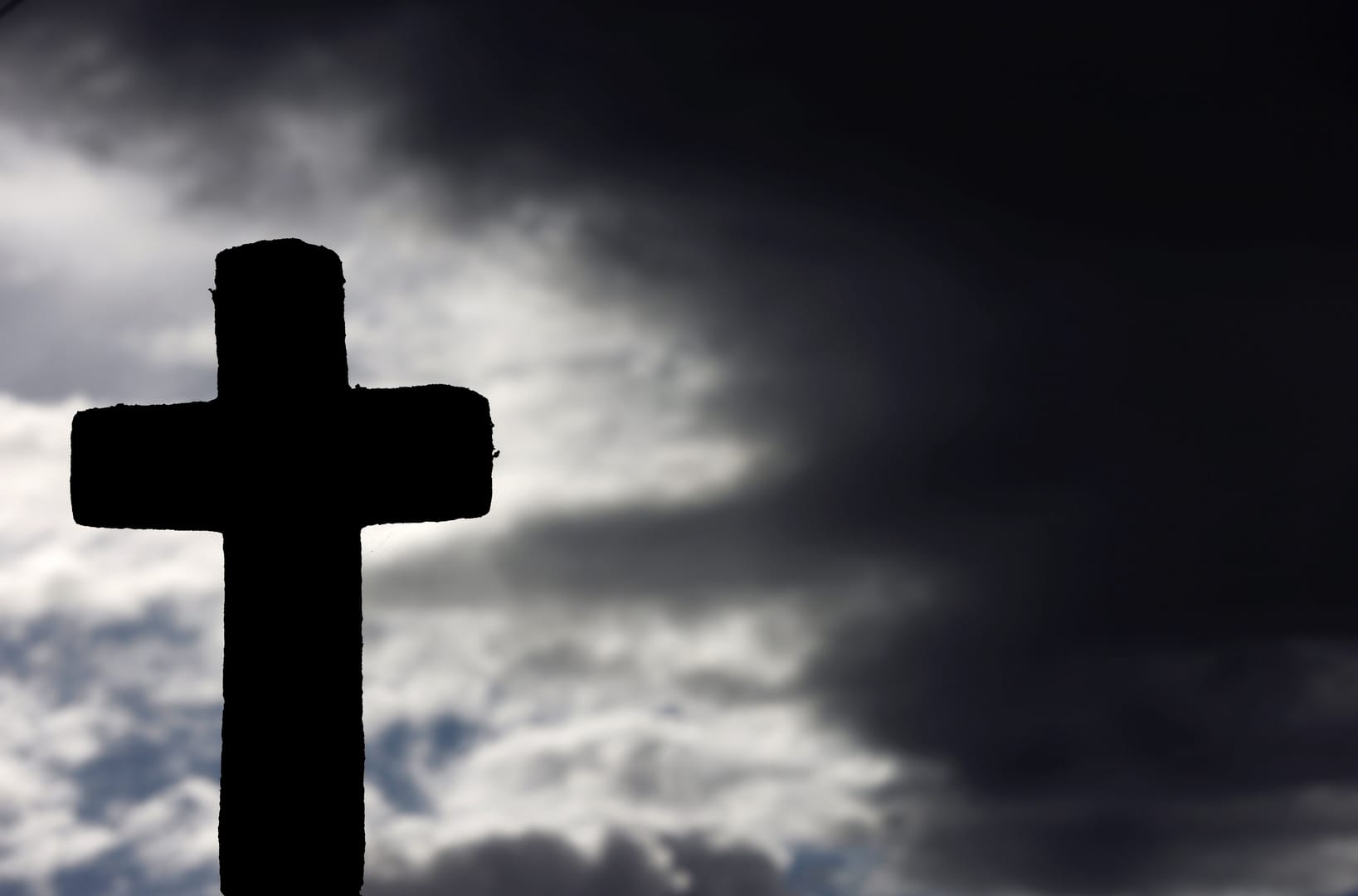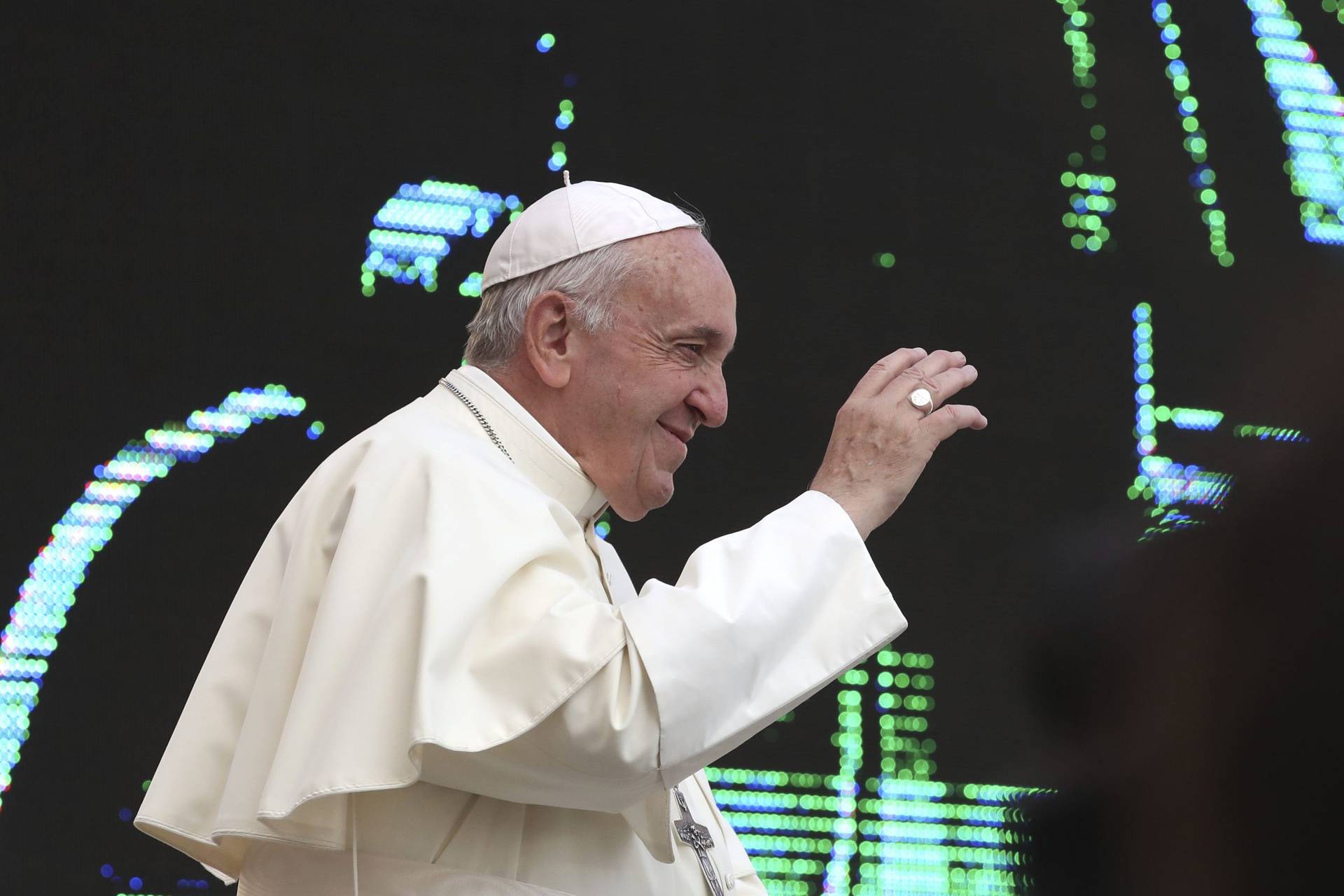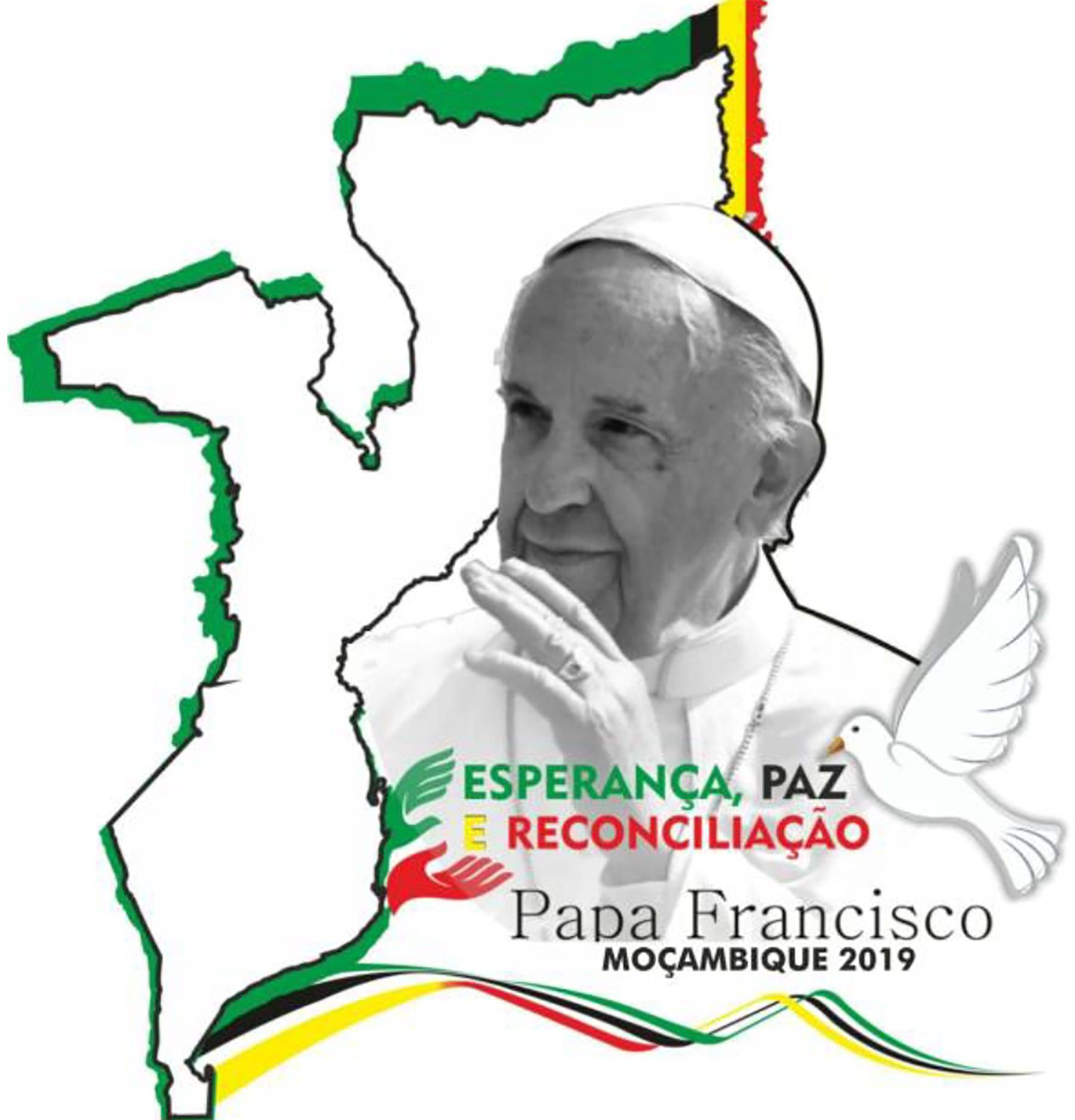WASHINGTON, DC – Pope Francis arrived in the United States to a boisterous welcome Tuesday, telling reporters on the papal plane that he won’t raise the Cuban embargo in his speech to Congress and rejecting the suggestion that he’s a political leftist.
“Maybe there’s an impression I’m a little bit more leftie, but I haven’t said a single thing that’s not in the social doctrine of the Church,” Francis insisted, referring to official Catholic teaching on social questions.
At one stage, the pontiff even challenged a journalist to give him an example of something he’s said that was “too strong.”
Asked about a recent Newsweek cover story asking if the pope is Catholic, Francis joked that “I’m ready to recite the Creed if need be,” referring to an ancient statement of core Catholic beliefs recited at every Mass.
The pontiff made the comments aboard the Alitalia flight carrying him from Santiago de Cuba, where he wrapped up a three-day visit to Cuba earlier in the day, to Andrews Air Force Base in Maryland for the start of a six-day swing in the United States that will also take him to New York and Philadelphia.
According a rare honor to the pontiff, President Barack Obama and his wife and daughters met Francis at the bottom of the stairs on the red-carpeted tarmac, accompanied by Vice President Joe Biden, who is Catholic, and his family, along with the mayor of the District of Colombia and the governors of Maryland and Virginia. Presidents usually make important visitors come to them at the White House.
Emerging from the plane to boisterous cheers from a crowd of hundreds, the smiling 78-year-old pontiff removed his skullcap in the windy weather and made his way down the steps in his white robes.
He was welcomed by a military honor guard, chanting schoolchildren, politicians, and Roman Catholic clerics in black robes and vivid sashes of scarlet and purple.
Eschewing a limousine, the pope climbed into the back of a modest little Fiat family car and promptly rolled down the windows, enabling the cheering, whooping crowds to see him as his motorcade took him to the Vatican diplomatic mission in Washington, where he will stay while in the nation’s capital. The choice of car was in keeping with his simple habits and his stand against consumerism.
During his press conference on the papal plane, in response to another question about why he didn’t meet anti-Castro dissidents during his three-day trip to Cuba, Francis said he would have been willing to do so because “I’m happy to meet everybody,” adding that he could not confirm that several dissidents were detained trying to reach him.
The pope declined to say what he might have discussed with dissidents, saying “I can’t deal in hypotheticals,” other than that he would have told them “the good news of God.”
Francis did say, however, that the Catholic Church called on the Cuban regime to release prisoners on the occasion of his visit, and claimed that more than 3,000 had been let go as a result.
The pontiff also said he would not specifically raise the US trade embargo on Cuba in his address to a joint meeting of the US Congress Thursday, but would stress the importance of “binational and multinational agreements” that can offer “signs of progress towards coexistence.”
Finally, the pope said that in the wake of his private meeting with Fidel Castro, he couldn’t comment on whether the icon of Cuba’s Socialist revolution may have “repented” of his treatment of the Catholic Church, saying “conversion is a very intimate thing, a matter of conscience.”
Francis said that in his 40-minute meeting with Fidel Castro Sunday, among other things they discussed the pope’s recent encyclical on the environment, Laudato Si’, and that the elder Castro is “very worried” about environmental questions.
With regard to American perceptions of his political leanings, Francis indicated he knows what’s in the air.
The pontiff laughingly said that a cardinal friend recently told him a “good Catholic lady … a little bit rigid, but a good Catholic” had expressed concern that Francis might be an “anti-pope”, because he doesn’t wear the traditional papal red shoes.
Francis conceded that perhaps the way his positions have been cast has given an impression of leaning to the left, but called it nothing more than “an error of explanation.”
“My teaching on all these things, on Laudato Si’, on economic imperialism, is that of the social doctrine of the Church,” he said.
Referring to his July trip to Latin America, where his remarks at a meeting of popular movements in Bolivia cemented impressions of his anti-capitalist instincts, Francis said someone asked him afterward if “the Church will follow me.”
“I told him it’s me who is following the Church,” he said.
On the question of why he didn’t meet Cuban dissidents, Francis said he had turned down all requests for a private meeting, including one from a “head of state” – presumably a reference to Argentine President Christina Kirchner, who was on hand in Cuba for the papal trip.
The pope conducted the news conference, which went on for slightly less than a half-hour and included seven questions in all, in Spanish and Italian. Asked toward the end why he didn’t respond in English, he laughingly said, “English isn’t my strong point.”
Francis and Obama met briefly in the VIP lounge of Andrews Air Force Base, but there was no formal welcoming ceremony and no speeches by either man.
On Wednesday morning, Francis will visit the White House for a formal welcoming ceremony on the South Lawn expected to be attended by roughly 20,000 people, including all the Catholic cardinals of the United States and the elected leaders of the US Conference of Catholic Bishops.
Afterwards, Francis and Obama will have a private meeting in the Oval Office, while in the Cabinet Room the Vatican secretary of state, Italian Cardinal Pietro Parolin, will meet US Secretary of State John Kerry.
Later on Wednesday, Francis will meet the American bishops in the Cathedral of St. Matthew in Washington, and then will move on to the National Shrine of the Immaculate Conception to canonize 18th-century Spanish missionary Junipero Serra.
Finally, Francis will make a brief stop at the archdiocesan seminary of Washington, DC, which was named for the late Pope John Paul II in 2011. Francis is expected to pose for a photo with the seminarians, unveil a commemorative plaque, and sign the seminary’s guest book before he leaves.
Material from the Associated Press was used in this report.















